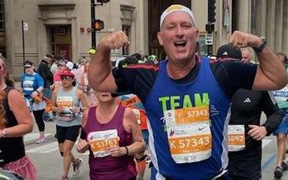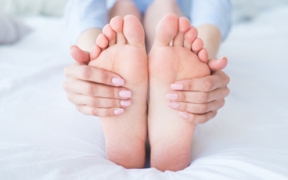Commonly called the Achilles tendon, it is known in medical terms as the calcaneal tendon. It is usually the strongest tendon in a person’s body, attaching the 2 muscles in the lower leg to the back of the heel. It is integral in allowing people to walk and move because it facilitates the extension of the foot and pointing of toes. It received its name from Greek mythology. Achilles was mystically protected from harm with only one weak point in his body; the tendon which would eventually bear his name. On the myth, Achilles died after a poisoned arrow fired by an enemy named Paris struck this tendon. Nowadays, most of us thankfully do not need to dodge poison arrows. Injuries to the Achilles tendon, while still potentially painful and debilitating, are not as dire as they were in the days of Zeus.
Common Achilles Tendon Injuries
While this tendon is the thickest and strongest tendon in the body, it is also one of the most frequently injured. Tendonitis, or swelling, is one of the more common causes of Achilles tendon injury(1). Of course this tendon can be damaged in more traumatic ways. A complete or partial tear is usually found after an excessive amount of force is placed on the heel. It takes a large amount of force to damage the tendon as it routinely receives 4 to 8 times the weight of a persons body when walking and running. These increased loads are most often seen in athletes. (2) This mean that in some cases a severely injured Achilles tendon can be career ending.
Non-Arrow Causes Of Achilles Tendon Injuries
There are a few causes of injury in the Achilles tendon. Some causes are things that can be changed and others are unfortunately unavoidable.
Common causes of tendon injury that aren’t caused by fighting:
- Improper, or ignored, stretching before starting exercise.
- Increased loads placed on the tendon by wearing high-heeled shoes.
- Beginning a new, or increasing an existing, overly strenuous activity.
- Medical conditions like fallen arches or flat feet, making every impact more forceful than usual.
- Overly tight tendons and muscles, which are not relieved by stretching.
- No different the other tendons, the Achilles tendon can be damaged by overuse and repetitive motion.
A few sports that were not around during the Trojan war have an increased risk to damaging the Achilles tendon. These modern sports usually place either repetitive or abrupt loads on the tendon. These physical activities include:
- Football
- Baseball & Softball
- Dance & Gymnastics
- Tennis, Racquetball & Handball
- Volleyball
- Basketball
- Long & Short Distance Running
Achilles Injury Treatment For People Who Aren’t Greek Heroes
If you think you have damaged your Achilles tendon, through something other than battling Trojans, you need to see an orthopedic physician quickly. Tendon injuries that are not treated by medical specialists occasionally see improvement but more commonly have the potential for other complications to occur. The physicians at the Illinois Bone and Joint Institute are very experienced in treating injuries to all tendons, including the Achilles. They may prescribe at home treatment like rest, ice, compression, and elevation. An orthopedic doctor can also prescribe anti-inflammatory drugs, provide custom orthotics, or may suggest surgical interventions in the worst cases. Making an appointment today with one of IBJI’s foot and ankle specialist can mean a quicker recovery and less pain. They are truly the best choice in the Chicagoland area for treating Achilles tendon injuries, as well as almost every orthopedic problem you may experience.
Sources
- Achilles Tendon Injury – https://www.webmd.com/fitness-exercise/achilles-tendon-injury
- Calcaneal Loading During Walking and Running – https://www.ncbi.nlm.nih.gov/pubmed/10731005
*This content is for information only and is not intended to replace the diagnosis, treatment, or medical advice from your treating healthcare professionals. The content does not provide medical advice, does not constitute the practice of medicine or other healthcare professional services, and does not create a doctor-patient relationship. You should not rely on this information as a substitute, nor does it replace professional medical advice, diagnosis, or treatment. If you have concerns or questions, seek the advice of your healthcare professionals. If you think you may have a medical emergency, call your doctor or 911 immediately. Do not rely on electronic communications or communicate through this website for immediate, urgent medical needs. This website is not designed to facilitate medical emergencies. The use of the information is at the reader’s own risk. The links are provided for information and convenience only. We cannot accept responsibility for the sites linked or the information found here. A link does not imply an endorsement of a site.




